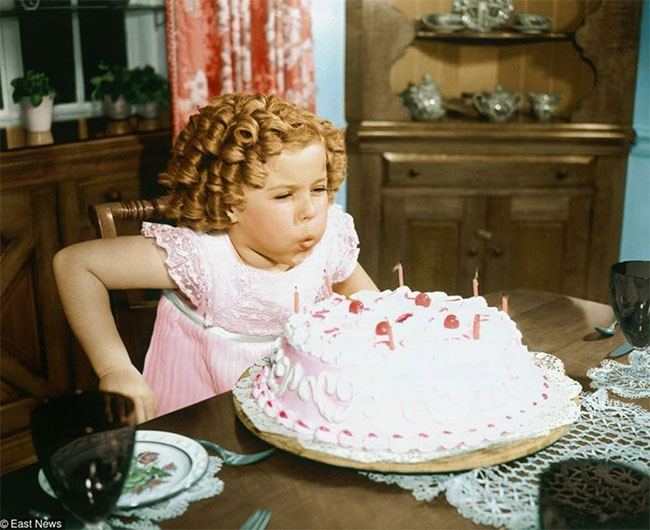Why do we often blow out candles on birthdays?
Most of our birthday parties involve blowing out candles. What does this mean?
One of the most awaited days of the year is probably birthdays. Everyone is looking forward to this special occasion to gather with loved ones to receive best wishes.

The ritual of blowing out candles on a birthday.
Burning candles and blowing out candles is considered an indispensable part of any birthday party. We do it as a custom but not everyone knows what it means.
So when did the ritual of blowing out candles on birthdays begin? Why do we do that?
In the early days of human history, when the concept of birthday had not yet appeared, people considered the day they were born just like any other normal day.
In ancient times, if not the aristocracy, birthdays were only for astrological purposes.
The concept of birthday was first mentioned in a bible book called "God made the world". Nearly 4,000 years ago the pharaoh celebrated his birthday by throwing a sumptuous party of powerful political figures of the time to mark his birth as a god.

The custom of burning candles and blowing out candles on birthdays is said to have originated in ancient Greece.
During this period, the goddess of the moon, Artemis, was highly revered, and her birthday was celebrated every year. In those days, on the altar of the goddess often displayed a cake made of eggs, flour and honey. On the surface of the cake, there are many burning candles and it is believed that the light of these candles represents the shimmering light of the Moon and thus people will show their devotion to God. Moon.
People believe that in the lit candles there is some mystical power and that when the candles are blown out, all wishes will come true. So later on, the Greeks still maintained this custom when celebrating their birthday with the hope that the best will come to the child. Just like that, this custom has been handed down to this day and is popular in many countries around the world.
- You will no longer want to blow birthday candles when you know the truth
- Find out the meaning of the candles
- Video: Art makes candles beautiful
- When did candles come from and how did candles change over the ages?
- Most of us have long lit candles incorrectly
- Singing 'Happy Birthday' helps make meals more interesting
- How to help candles burn more slowly and last twice as long
- The unimaginable power comes from burning candles
- New steps in interactive interface
- Perfect candles for 'Earth Hour'
- Romantic candles can lead to cancer
- The mysterious magic of the people on the top of Truong Son
 'Fine laughs' - Scary and painful torture in ancient times
'Fine laughs' - Scary and painful torture in ancient times The sequence of numbers 142857 of the Egyptian pyramids is known as the strangest number in the world - Why?
The sequence of numbers 142857 of the Egyptian pyramids is known as the strangest number in the world - Why? History of the iron
History of the iron What is alum?
What is alum?